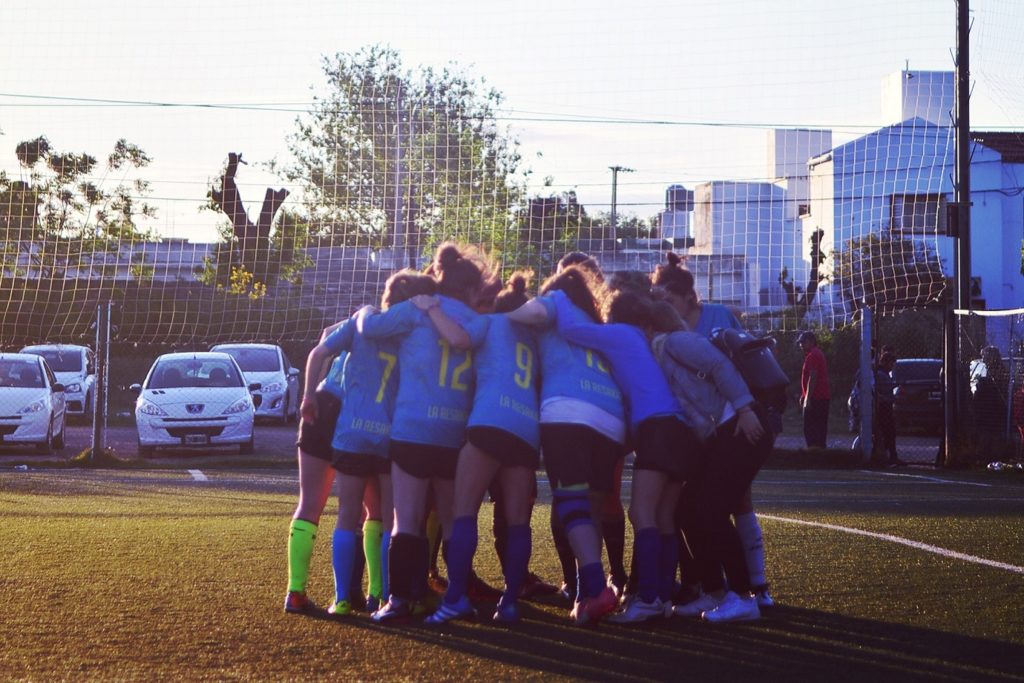More women and girls are participating in community sport than ever before, but a new study has found they continue to feel undervalued and their achievements often go unrecognised.
Researchers at Monash University and Victoria University found that ongoing micro-practices, like difficulty accessing quality facilities, poorer training times, less recognition on club’s social media and lower recognition of their successes, negatively impact women and girls in community sport.
The study conducted interviews and observations at a Victorian football and netball club over a six-month period, and highlights how female footballers and netball players didn’t feel fully embraced by the club, and were resentful at the lack of recognition they received.
One young netball player said: “Men’s footy probably comes first because it’s the most important thing in the entire league, not just the club.”
Male football players and coaches were found to kick women players off the oval during training times, despite knowingly breaching previously agreed upon training slots and space allocations. According to the study, one male football player was observed yelling: “Why can’t the girls get off the [censored] pitch”, during a training session.
One of the study’s lead researchers, Associate Professor Ruth Jeanes, from the Faculty of Education at Monash University, said community sport continues to be fairly traditional, in terms of its prioritisation of men’s teams.
“While participation in sport is changing through the involvement of more women and girls, the ideologies surrounding what is valued and prioritised within community sport remain fairly traditional, with the male senior teams still considered to be the most important element of the club,” Associate Professor Jeanes said.
“The profile of women’s elite sport is increasing. However, this has not necessarily translated to an equalling of gender relations within community sport.
“Though women and girls are more present than they have ever been in community sporting spaces, and involved in club leadership and coaching, women’s and girls’ participation is still deemed a lower priority and less important than men’s.”
In interviews with male committee members, it was suggested that there was no “boy’s club” mentality and the club was an inclusive space for everyone. However, women members of the club disagreed, and indicated the club remained a male-dominated space that revered “the dominant performance of masculinity”.
At the club, senior men’s team were given priority use of the main oval for training and matches, which was well-maintained with easy access to change rooms and the clubhouse. Women’s teams played on an oval at the rear of the clubhouse, a distance away from the change rooms and spectators.
Many coaches at the club remarked the men’s football teams should be prioritised as they were more likely to draw crowds and sponsors.
Professor Ramón Spaaij from the Institute for Health and Sport at Victoria University, also a lead researcher, said more attention should be paid to the subtle ways women are marginalised at the community sport level.
“Girls and women are less likely to continue participating in sports where they don’t feel welcome and their achievements are undervalued. This leads to issues of retention, and girls and women losing out on the numerous health and social benefits provided by community sport participation,” Professor Spaaij said.
“If culture change towards full gender equity is to be achieved in community sport, more attention needs to be paid to the subtle ways in which women’s presence is marginalised or under-valued. Our study particularly shows how the allocation, use and representation of space (playing fields, clubrooms, social media) play an important role in this.”
***
Love women’s sport? Sign up to receive our weekly update, The Sporty Wrap, here.

